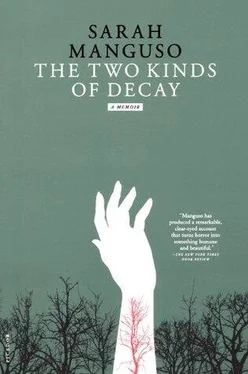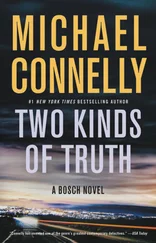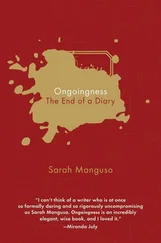And I said, Me too! Do you have MS? I knew that multiple sclerosis and its sister diseases, like mine, were commonly treated with high-dose corticosteroids.
The bar was very loud. The man I was having an affair with didn’t hear. By then a few more people we knew had shown up.
The friend of the man opened his eyes wide and said No! but didn’t mean it. I took him aside and apologized, but I wasn’t surprised when he began to weep. He said, I’ve never been able to tell anybody that, and I hugged him.
His tears seemed fake, though, and I wasn’t surprised when he became an actor.
In August 1997 I moved to Iowa City to go to graduate school. I brought a letter from my hematologist noting the concentration and rate of the gamma globulin infusion I’d need if the disease relapsed again.
I loved Iowa City. It was small enough that I was able to know it thoroughly.
I didn’t bring a car. I didn’t like driving. I’d loved living in New York and walking everywhere.
And so even though Iowa City wasn’t as pedestrian-convenient as New York, I walked everywhere.
I walked all the way up Gilbert Street to the Asian grocery store where I could get Korean noodle bowls. The kind I liked was called I’m Hot.
I liked cooking the oily noodles, draining them and mixing them with a can of tuna, then tossing everything with the contents of the spice packet and a couple of tablespoons of water.
I went to the Korean grocery every two weeks.
On maybe my fifth trip to the grocery, I noticed a small building just past it, on Gilbert.
It was a plasma donation center!
The rates for plasma donation were posted in the window. I think it paid $45 per liter.
One day a woman in my graduate program told me that she donated plasma twice a month, which was as often as they’d allow it. And I remember how excited I felt, the moment before I told her how much plasma I’d used, plasma that had been gathered at donation centers like the one on Gilbert.
When I turned twenty-two I thought my life, which had already been relatively easy, would get even easier, since at twenty-one, I’d already done the hardest thing I’d ever have to do.
The only hard thing I’d ever done had not left me compassionate.
I remember the first friend I made who met me after the diagnosis, but I don’t remember when I stopped thinking, when I met new people, This person, whose hand I am shaking at this moment, is another person who never knew me before the diagnosis.
The only hard thing I’d done in my life was recovering from a disease. My self-image had been highly susceptible to that event. It constituted most of my identity.
When a friend or a stranger mentioned anything about a difficult or noteworthy event, I chose one of countless hospital vignettes from recent memory and told the little story in a way that prevented further conversation about it or any other subject.
Though during the bad relapses I knew I was a better person temporarily, in general the disease made me furious, jealous, resentful, impatient, temperamental, spiteful. My sense of entitlement grew enormous. I knew the steroids had triggered what is now called a mood disorder, and I didn’t care.
The hardest thing I’d ever done, the hardest thing I’d ever have to do, had made me a worse person! That wasn’t how it was supposed to work. Tribulation is supposed to make strong people, people who radiate mercy, leaders of their kind.
I’d have to do harder things before my self-regard lost the mean air that had inflated it.
Prednisone’s long-term side effects include depression and mania, weakness and fatigue, blurred vision, abdominal pain, infections, painful hips and shoulders, porous bones, acne, insomnia, weight gain, stretch marks, facial swelling, and nervousness. There are others. Those are just the ones I have.
Textbooks refer to the side effects as premature aging of the body.
The sore spots below my cheekbones make it hard to lie down without a soft pillow. I can’t lie on my side on a flat surface. I lie on my belly and rest my skull on the tip of my nose and lift my head for periodic breaks.
When I hold a long melismatic vowel, my facial muscles tire. That is, if I sing Ahhhh for a few seconds, all the little muscles around my mouth start to twitch.
I gobble calcium supplements to keep my osteopenia from turning into osteoporosis, but someday it will. I’ll break a hip and it won’t heal, and I’ll become bedridden and develop pneumonia and suffocate.
In San Francisco I met a man who was missing a big chunk of his jaw. The conversation turned to a certain type of hospital visitor. Have you considered herbal remedies? this visitor asks. Both the man and I had entertained this visitor.
Herbal remedies! They’re less toxic to me and to the earth. If I don’t live long enough to break a hip, it will be because I get cancer, an ironic side effect of Western cancer drugs.
Western medicine saved my ass, the man said. He wasn’t smiling. That’s all he or I needed to say.
Before there was much of an Internet, I wrote a letter to “Confidential Chat” in The Boston Globe saying I would appreciate hearing from others who had Guillain-Barré syndrome or who knew anything about it.
I received fifteen letters in response. Most were handwritten, and a few were typewritten, with plenty of whited-out errors.
A woman named Gayle wrote this to me:
Prior to GBS I was into weightlifting and Truck Driving. I could lift well over 100 lbs. After GBS I couldn’t lift a 2 lb sand bag, it was very discouraging at first but then I kind of got angry and started working really hard to get my self back to where I was prior well I am half the way on the weight lifting, and back to every activity I was in prior, I just don’t have to much strength I get tired out alot quicker, sick alot quicker. It doesn’t happen as quick as you’d like it to, but patients it will. I do remember the one thing that really got me frustrated though, it was the soda cans, I couldn’t open them, for the longest time.
Besides the fifteen letters, I received a mesh rectangle of gray and white embroidery spelling the word JESUS.
In 1999 I found an online bulletin board for people with CIDP Its posts described even the weirdest and rarest symptoms and side effects, and each post had drawn dozens of responses.
Plenty of adults wrote on the board about themselves or their children.
One poster asked whether there were any young adults on the board, people in their teens or twenties. The woman who’d written the post was named Mary, and she was from Dublin, Ireland, and she was twenty-one years old.
And I was twenty-five, and so I wrote back. We wrote to each other almost every day.
Mary wore metal braces on her legs and lived with her mother and saw her neurologist only once a month or so, and it was only then that she could have apheresis. That was the best her country’s health-care system could do for her.
Mary and I exchanged photos many years later, after she’d moved to Spain and then to France, and had undergone apheresis in four countries, and after she’d taken the braces off her legs so she could try pressure stockings instead, and then put the braces back on after the stockings didn’t work, and after she’d dated two Parisian men at once and done mountains of cocaine and got blind drunk in more countries than I have even visited, and I saw, without surprise, that she is an absolute knockout.
Читать дальше












